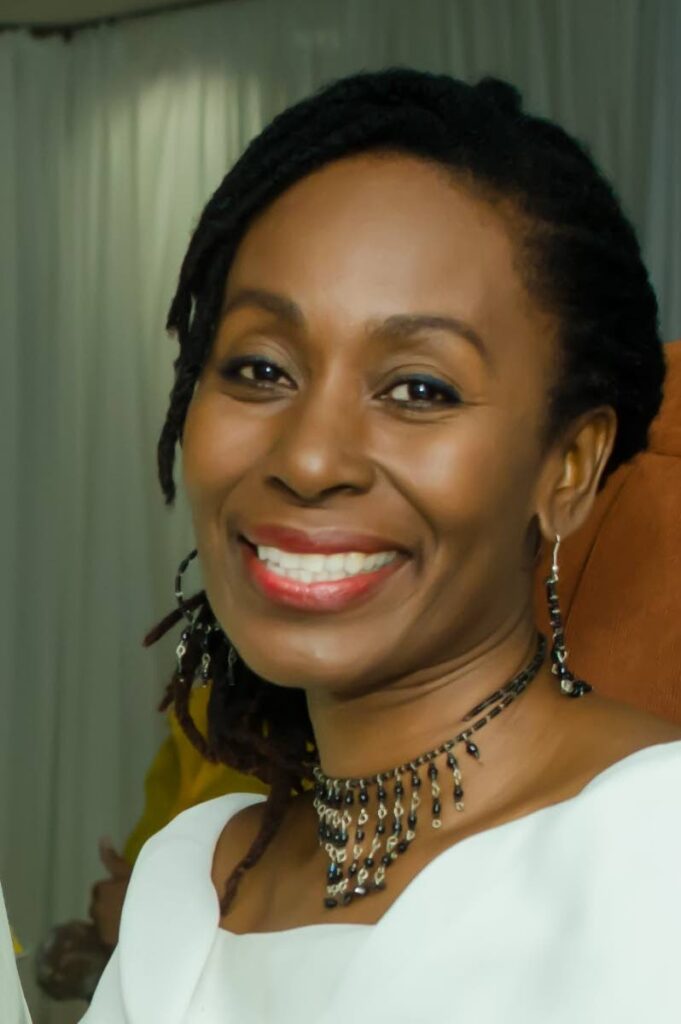Strength in numbers

Culture Matters
DARA E HEALY
“I would write something funny + clever but I’m on strike!”
“Our shows are household names but we can’t afford houses.”
“Try filming a blank page.”
“Alexa will not replace us.”
“My mom’s Netflix password is Elvis 1965.”
– protest signs held by US writers on strike
THE ISSUES being raised by writers currently on strike in the US have several parallels here. Fair remuneration is at the core of the dispute between the representative union and the studios, but their discontent is about more than money.
In TT, many of us who choose to live as full-time artists can relate to their concerns. For them, the post-pandemic arts and entertainment environment has meant longer hours and reduced financial benefits, including residual or long-term earnings from their various writing projects.
Here, our challenges are similar, ranging from a lack of facilities for the arts to ongoing struggles to be paid on time, or at all.
Whether here or in the US, practitioners are battling the reality that the business of the arts is still unequally divided between the artists who create amazing content and the people who profit from their talent.
The cancellation of your favourite shows due to the industrial action is more than an inconvenience. It is not being dramatic to caution that the writers’ strike could impact much of what we take for granted in democratic societies. This week, we commemorated the 30th anniversary of World Press Freedom Day. We reaffirmed the fact that journalists have both a right and a duty to investigate and lay bare inconsistencies, misinformation and unethical behaviour.
While late-night hosts are not journalists, they do provide alternative viewpoints to our reality. These programmes, watched by global audiences, are important because of their fearlessness at mocking the conduct of politicians and others in authority. They are sustained by writers who track and reshape information in their unique, ironic way.
In a world where truth, integrity and honesty in public life are increasingly illusive, the sharp wit of the writers behind these programmes is urgently needed. In TT, we do not yet have the open-mindedness or independent wealth to create such satirical programming.
However, I do believe that these programmes impact our ability to critically analyse this TT space, particularly since civics was removed from school curricula.
Still, where our education system conspires to dull minds, our creatives provide us with the critical analysis and wit as showcased by late-night shows in the US. From calypsoes to mas, dance, literature and spoken word, many local artists continue to resist a politically-correct stance to the challenges we face. But are their efforts enough?
As communities buckle under the weight of crime, student violence, child abuse, addiction to pornography, racism and more, it is time to rethink how the arts and culture are viewed within the overall understanding of development. As the next national budget draws closer, I once again advocate for a more thoughtful and realistic approach to the allocation of funds for the creative industry.
Integral to the challenges we face is lack of a clear sense of who we are as a nation, our values and standards. As the US writers’ strike has shown, the power of storytelling to inculcate national values should not be underestimated.
Consider, for example, how many programmes from the UK promote a sense of what it means to be British. Apart from their legacy of colonialism, enslavement, Windrush and others, the world expects the British to behave in a certain way. Decades of programming from film to radio and television have led us to expect values and characteristics such as diplomacy, dry humour and excellence.
To deepen our sense of national identity, we must allocate serious funding towards telling the stories that celebrate our rich heritage and collective history.
Further, as part of reforming our approach to education, it is time to implement comprehensive creative programmes for educators at the primary and pre-school levels.
The writers’ strike is being viewed by some as an existential moment in time. Writers complain they are unable to afford a home, while some studio CEOs earn as much in one year as the entire settlement being requested.
In TT, artists should pay attention to the cohesive stance taken by the writers in the US. And the rest of society should consider what would happen to TT’s global ambitions if artists decided to simply stop creating.
Dara E Healy is a performance artist and founder of the Indigenous Creative Arts Network – ICAN


Comments
"Strength in numbers"